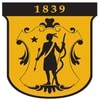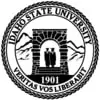Best Online Economics Colleges
Get detailed information about best online Economics colleges and their tuition, accreditation, career prospects, scholarships, admission details and much more
Online Economics Colleges
Economics the study of how goods and services are produced, distributed and consumed. In short, economics is the study of supply and demand. It is the theory of how markets work and wealth is distributed including how scarce resources are allocated. Economics is not just how the stock market is doing. Rather, economics refers to how people, businesses, and countries choose to spend their money.
An Accredited College/University creates a pathway for the students to enroll in registered economics programs offered by the Colleges/University which are funded by the federal government or the state government.
The Organizations that accredited a college for economics programs are listed below:
-
Association to Advance Collegiate Schools of Business International(AACSB)
-
International Assembly for Collegiate Business Education(IACBE)
-
Accreditation Council for Business Schools and Programs (ACBSP)
Economics degrees are typically taught as a combination of lectures and seminars, with written assignments to be submitted to seminar tutors. From production to consumption, economics looks at how the world’s resources are used by and distributed among individuals and organizations. This involves studying areas of politics, sociology, law, psychology, geography, and history, at local and global levels and also the study of macroeconomics, microeconomics, and econometrics.
An Associate’s degree requires 70-90 credits and takes 2 years to be completed.
A Bachelor’s degree requires 120-125 credits and typically takes 4 years to be completed.
A Master’s degree requires 30-50 credits and takes 2 years to be completed.
A Doctorate’ degree requires 40-80 credits and takes 5-7 years to be completed.
A minimum of 2.7-3.0 GPA is the requirement to apply for admission in economics program.
A degree in economics provides students with knowledge of the fundamental principles of economics and how they affect international finance, public policies, and business management. Studying economics can build careers in many business and financial industry fields, as well as government and nonprofit organizations.
Florida Atlantic University (FAU)
Boca Raton, Florida
Institution Type: Public
Economics Accreditations: CAMPEP
Average Federal Student Loans awarded: $5,249
Average Student Loans Awarded: $6,551
Total Programs in Economics (3)
3
Masters Programs
Eastern Oregon University (EOU)
La Grande, Oregon
Institution Type: Public
Economics Accreditation: Request Info
Average Federal Student Loans awarded: $5,855
Average Student Loans Awarded: $6,291
Total Programs in Economics (3)
3
Bachelors Programs
Institution Type: Public
Economics Accreditation: Request Info
Average Federal Student Loans awarded: $5,092
Average Student Loans Awarded: $5,356
Total Programs in Economics (2)
2
Certificate Programs
Framingham State University (FSU)
Framingham, Massachusetts
Institution Type: Public
Economics Accreditation: Request Info
Average Federal Student Loans awarded: $5,346
Average Student Loans Awarded: $6,670
Total Programs in Economics (1)
1
Bachelors Program
Georgia Southern University
Statesboro, Georgia
Institution Type: Public
Economics Accreditation: Request Info
Average Federal Student Loans awarded: $5,072
Average Student Loans Awarded: $6,255
Total Programs in Economics (2)
1
Masters Program
1
Graduate Certificate Program
Mercer University
Macon, Georgia
Institution Type: Private Not-For-Profit
Economics Accreditation: Request Info
Average Federal Student Loans awarded: $5,901
Average Student Loans Awarded: $7,360
Total Programs in Economics (1)
1
Masters Program
Idaho State University
Pocatello, Idaho
Institution Type: Public
Economics Accreditation: Request Info
Average Federal Student Loans awarded: $5,942
Average Student Loans Awarded: $6,221
Total Programs in Economics (1)
1
Masters Program
Murray State University
Murray, Kentucky
Institution Type: Public
Economics Accreditation: Request Info
Average Federal Student Loans awarded: $7,184
Average Student Loans Awarded: $8,295
Total Programs in Economics (1)
1
Masters Program







